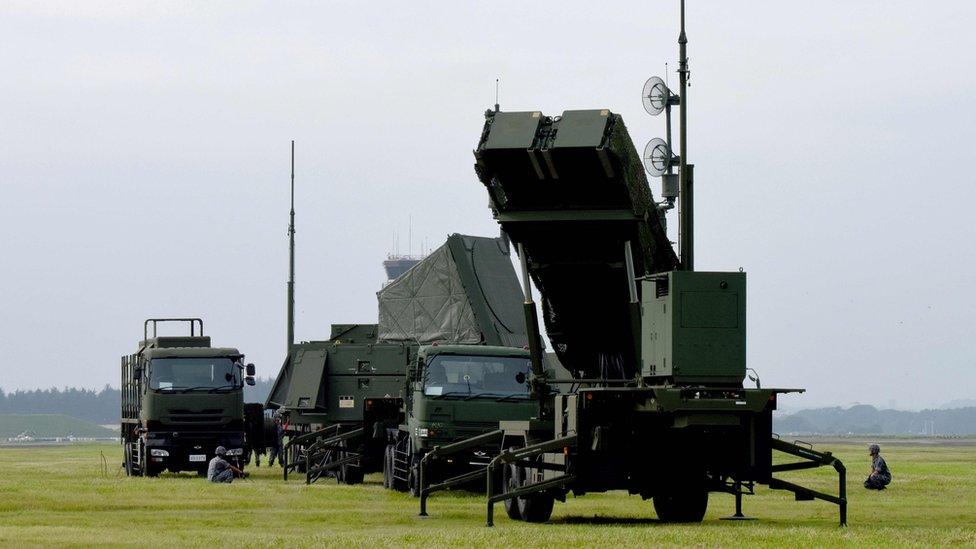North Korea missile and nuclear test halt hailed
- Published
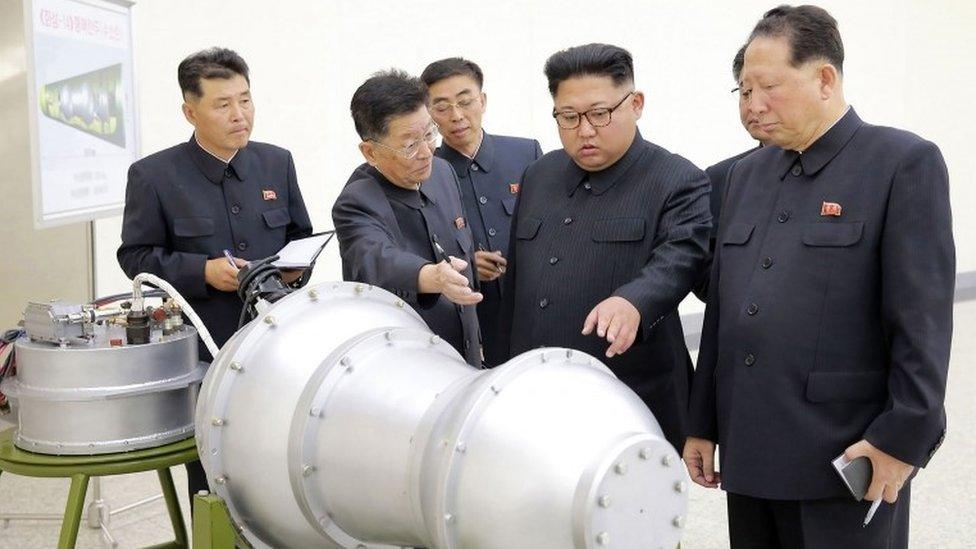
Kim Jong-un says the North has achieved nuclear "weaponisation"
North Korea's announcement that it is halting nuclear and missile tests has received a broad international welcome.
Leader Kim Jong-un said further tests were not needed, as the North had demonstrated it had nuclear weapons.
Donald Trump described the move as "good news" for the world, and South Korea said it was meaningful progress.
The EU said it was "positive", but called for complete denuclearisation. North Korea is preparing for historic summits with South Korea and the US.
Early on Saturday Kim Jong-un said: "From 21 April, North Korea will stop nuclear tests and launches of intercontinental ballistic missiles."
The news was announced on North Korean state TV
The surprise announcement, relayed by the country's KCNA news agency, also said a test site would be shut down.
Welcoming it on Twitter, Mr Trump said he was looking forward to a face-to-face meeting with Mr Kim in June.
Allow X content?
This article contains content provided by X. We ask for your permission before anything is loaded, as they may be using cookies and other technologies. You may want to read X’s cookie policy, external and privacy policy, external before accepting. To view this content choose ‘accept and continue’.
Mr Kim and South Korean President Moon Jae-in are due to meet next week for the first inter-Korean summit in over a decade.
Mr Moon's office said the North's decision would "contribute to creating a very positive environment for the success of the upcoming South-North summit and North-United States summit."
European Union foreign policy chief Federica Mogherini said it was a "long sought-after step" that should lead to "verifiable and irreversible denuclearisation".
The call was echoed by the UK. The statement from the British government added: "We hope this indicates an effort to negotiate in good faith."
The US and its allies have been pushing Pyongyang to abandon nuclear weapons.
China, North Korea's main backer, said it believed the move would "help ameliorate the situation on the peninsula".
Russia's foreign ministry also welcomed it, but called on the US and South Korea to reduce their military activity in the region.
Why has Pyongyang halted tests?
In his statement, Mr Kim said it was no longer necessary to conduct missile tests because "nuclear weaponisation" had been achieved.
This echoes a previous statement made during a New Year address in which Mr Kim declared his nuclear and ballistic missile programmes completed.
Although Pyongyang said it would abolish its nuclear test site, there is no indication it is planning to get rid of its existing weapons.
The decision to halt missile tests is also aimed at pursuing economic growth, according to KCNA. Mr Kim reportedly pledged to "concentrate all efforts" on developing a socialist economy during Friday's meeting.
How could war with North Korea unfold?

The summit is the prize
By Ankit Panda, senior fellow at the Federation of American Scientists
These concessions from North Korea have come before the two anticipated summits with the US and South Korea.
One may wonder why Mr Kim should give up so much in advance instead of hanging on to a nuclear test-ban and an ICBM moratorium as aces up his sleeve.
The answer is simple: a summit with a US president is enough of a prize in itself. For Mr Kim, it's something that neither his grandfather nor his father could attain.
What North Korea loses by demolishing its nuclear test site and submitting to a unilateral moratorium on ICBM launches is entirely tolerable compared with what Mr Kim gains by sitting alongside President Trump.
How to talk to North Korea - advice from three North Korean experts
Major North Korean missile tests
North Korea has carried out numerous missile tests. Some of these exploded shortly after launch, but others travelled for hundreds of miles before landing in the sea. Here are some of the major tests reported last year alone:
12 February 2017 - A medium-range ballistic missile launched from Banghyon air base near the west coast. It flew east towards the Sea of Japan for about 500km.
4 July 2017 - Pyongyang claimed to have successfully tested an intercontinental ballistic missile for the first time. Officials said it reached an altitude of 2,802km and flew for 39 minutes.
29 August 2017 - North Korea fired what is thought to be its first nuclear-weapon capable ballistic missile over Japan. It was launched from near Pyongyang and reached a height of about 550km.
15 September 2017 - A ballistic missile was fired across Japan for the second time and landed in the sea off Hokkaido. It reached an altitude of about 770km and travelled 3,700km.
29 November 2017 - North Korea said it had successfully tested a new type of intercontinental ballistic missile that could reach the whole of the continental US. The Hwasong-15 missile landed in Japanese waters but flew higher than any other missile the North had previously tested.

- Published9 March 2018
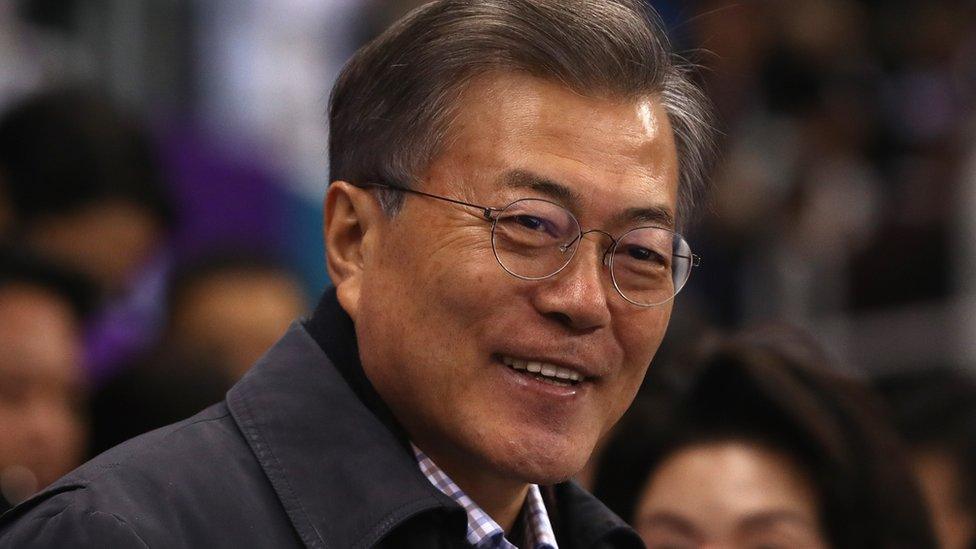
- Published9 March 2018
- Published9 March 2018
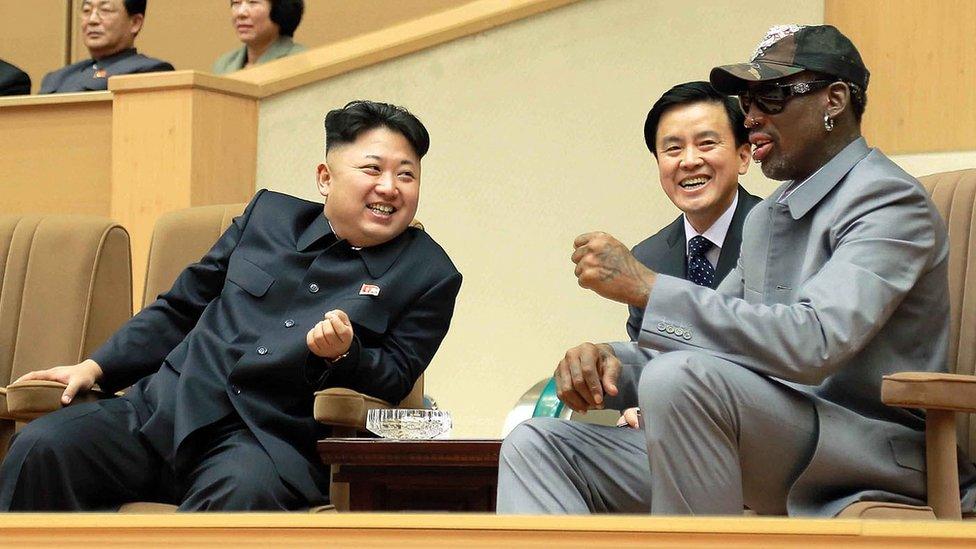
- Published9 March 2018
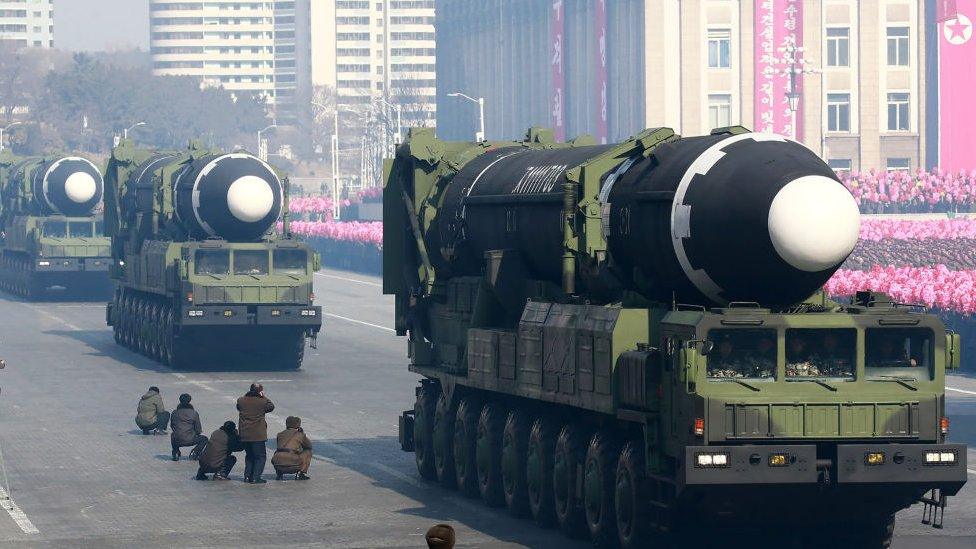
- Published28 February 2018
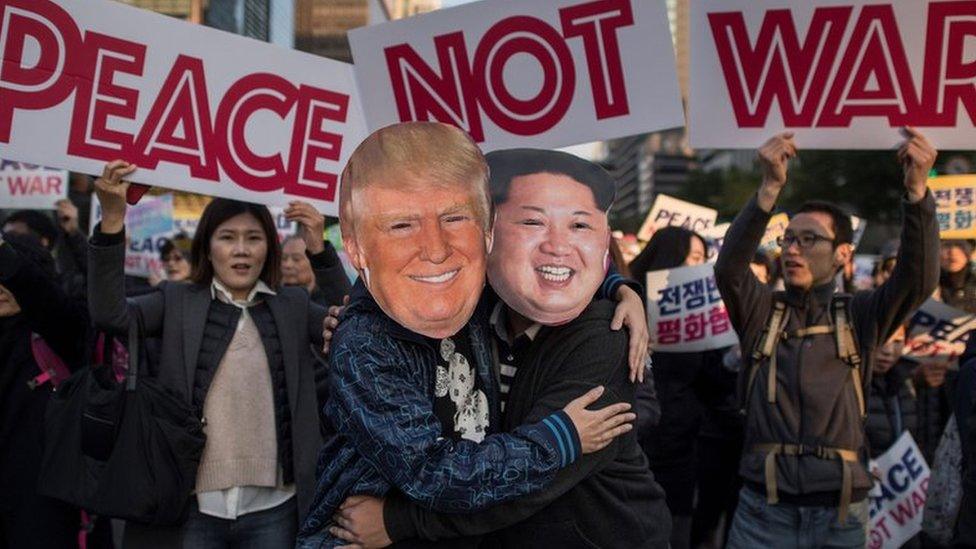
- Published20 February 2018
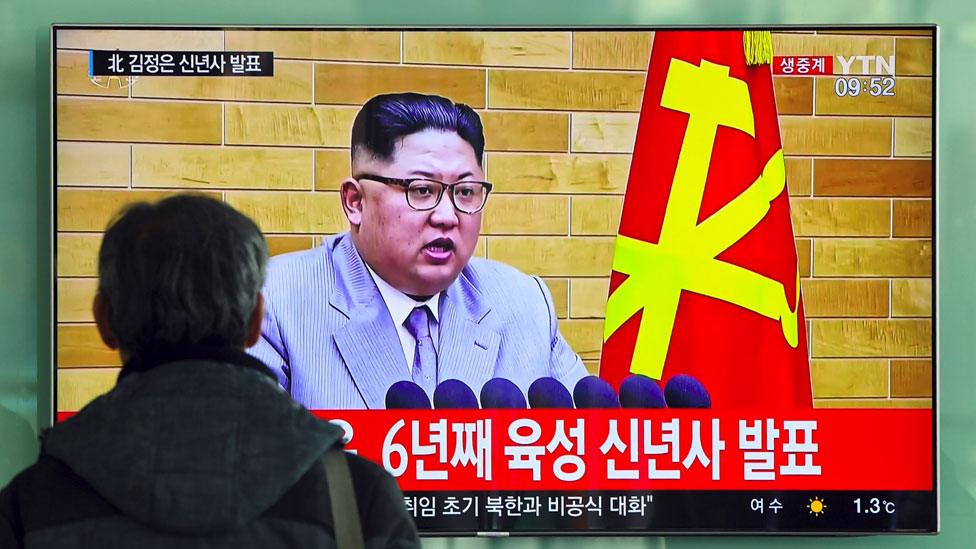
- Published5 September 2017
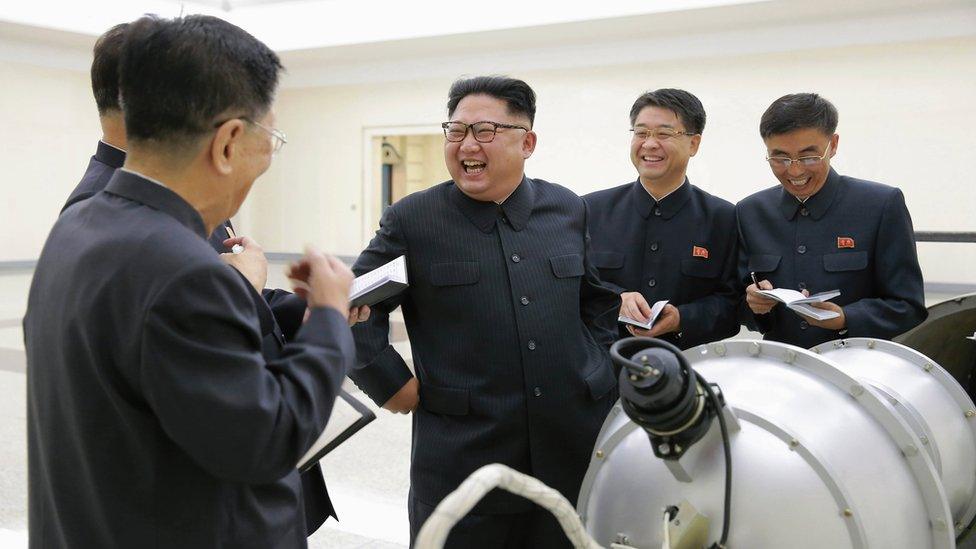
- Published9 August 2017
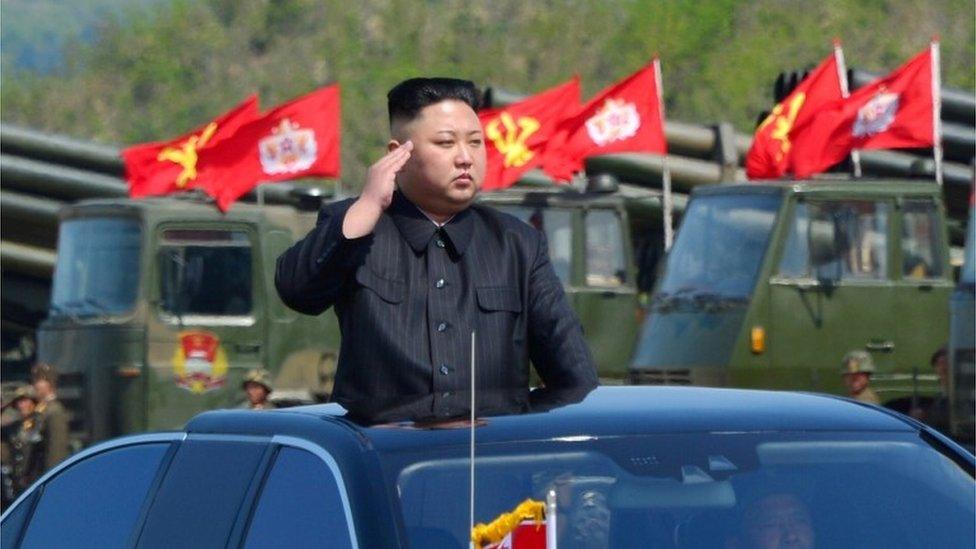
- Published10 August 2017
- Published15 September 2017
- Published15 September 2017
